Worcester angler calls for pollution action to 'save' River Severn
- Published
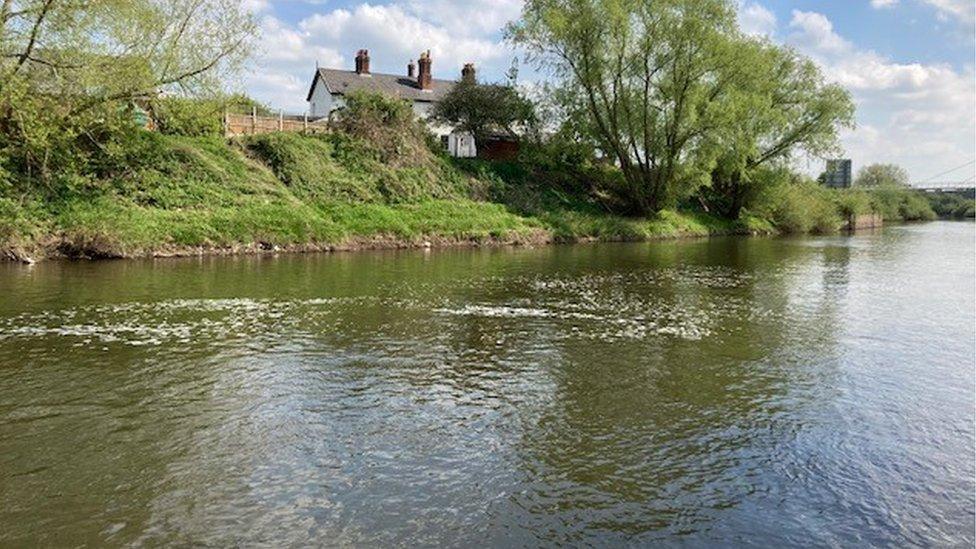
Mr Marshall said untreated waste went into the Severn near the treatment works 81 times last year
An angler says urgent action is needed to clean up the River Severn after finding "shocking" levels of pollution.
Glyn Marshall, who also campaigns to protect rivers, said Severn Trent Water was not removing phosphate at its treatment plant at Diglis, Worcester.
He fears pollution will lead to algae growth and wildlife dying.
Severn Trent said its permit did not require it to remove phosphate at the site, but the plant was being upgraded to allow it to do this by May 2026.
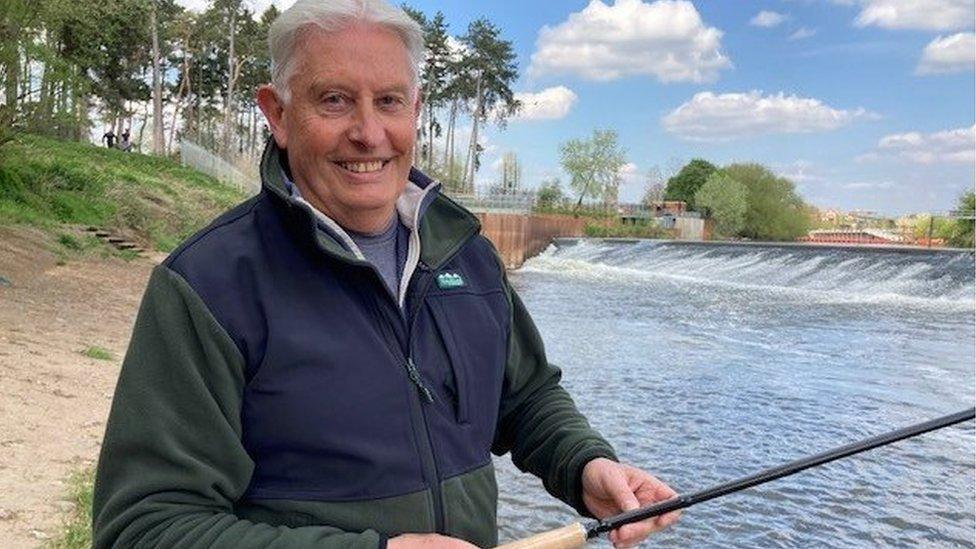
Glyn Marshall says a reduction in streamer weed in the River Severn is among signs of pollution
Mr Marshall, 65, said data from the river sewage map showed untreated waste went into the Severn at Diglis 81 times last year.
"The residents of Worcester need to realise that what's going into our local river is horrible and it's not getting any better," he said.
The river had become increasingly polluted and one example was reduced levels or streamer weed which animals such as cygnets fed on, he said.
"I have seen in the change in the last three of four years and it's not the same river I fished when I was a teenager," he said.
He fears the Severn could become like the River Wye which was "just about teetering".
Campaigners say high phosphate levels in the Wye are causing excessive algae growth which harms wildlife.
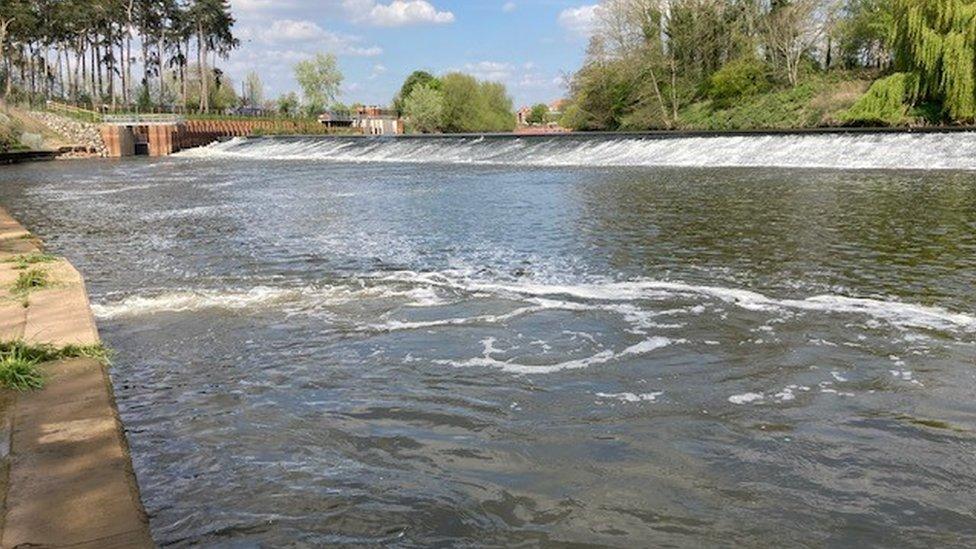
The plant needed updating to cope with a growing population, said Mr Marshall
Mr Marshall said Worcester's population had "grown massively" and the Diglis plant could not cope.
"Worcester is going to still keep growing so the residents of Worcester: your river is going to die in the next five years unless something is done," he said.
"If we don't do something about the quality of our waterways and specifically the Severn then there will be no fish in the river - there will be nothing left."
Meanwhile, protesters from Up Sewage Creek dressed in hazmat suits on Saturday for a "theatrical protest" about water quality in the Severn in Shrewsbury.
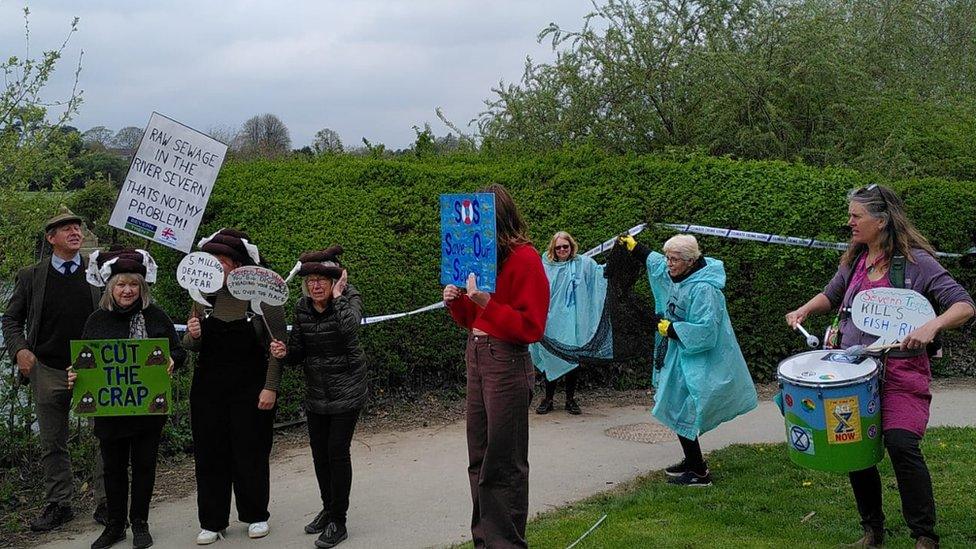
People have also protested about the state of the Severn in Shropshire
Claire Kirby said the protest at Pig Trough, Coton Hill, was because the site was "regularly blighted by human excrement spilling out" from the combined sewerage overflow (CSO) there.
Severn Trent said it recognised people's right to a peaceful protest and had recently talked through its pledges on river health. , external with the group.
The company added SCOs, such as at Diglis and in Shrewsbury, were used to prevent flooding in storm conditions and accounted for 3% of rivers "not achieving good ecological status".
"We're already working hard to use overflows less and we're investing £100m a year to go even further in improving rivers so that nature can continue to thrive," it added.

Follow BBC West Midlands on Facebook, external, Twitter, external and Instagram, external. Send your story ideas to: newsonline.westmidlands@bbc.co.uk, external
- Published16 April 2022
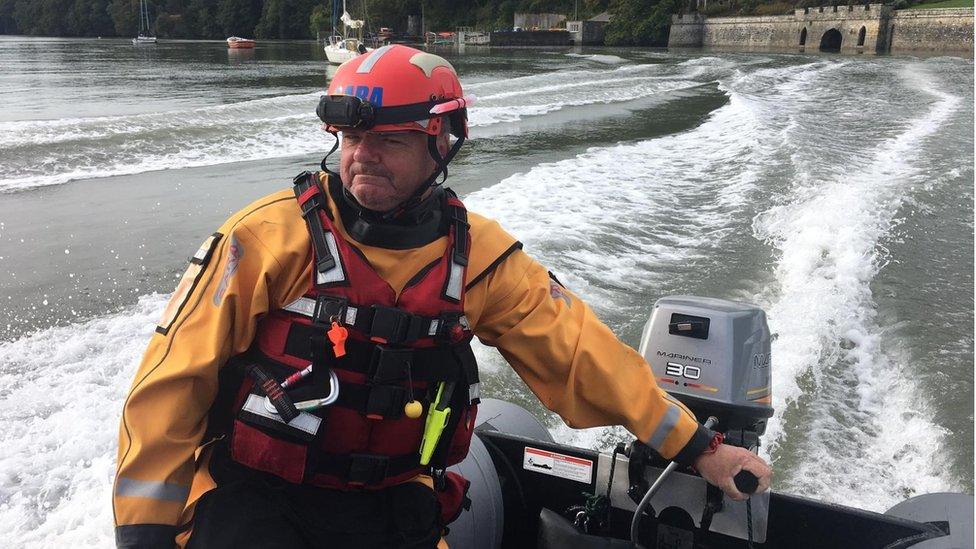
- Published17 February 2022
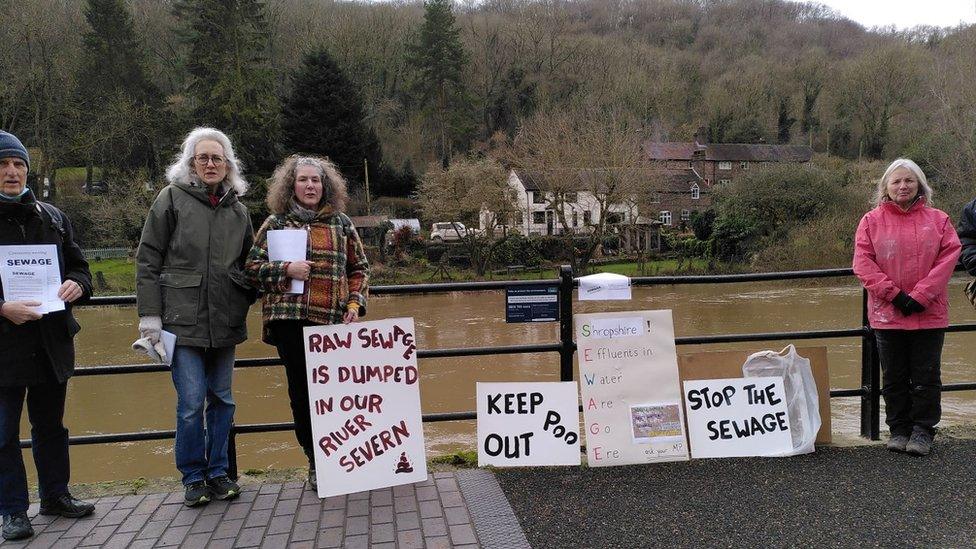
- Published8 February 2022
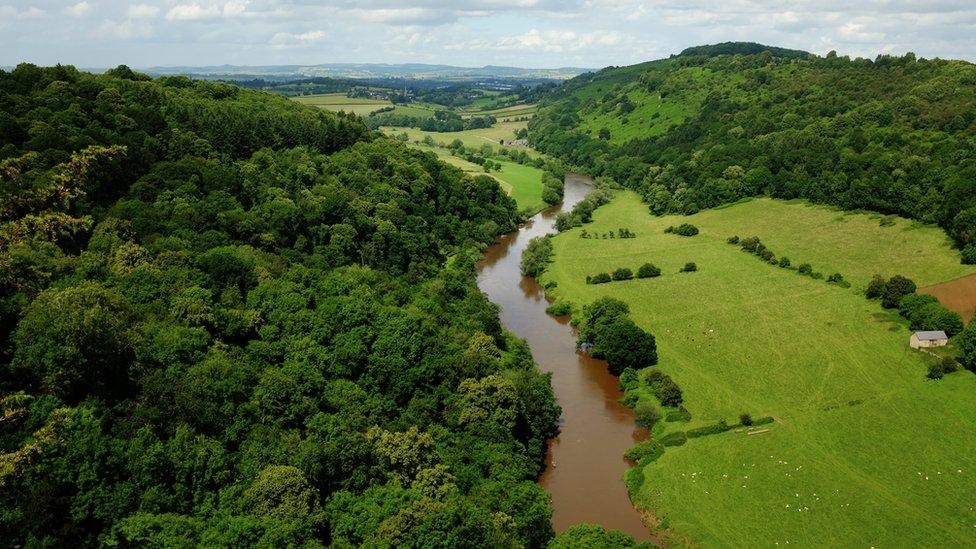
- Published24 December 2021

- Published20 November 2021
